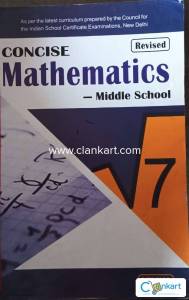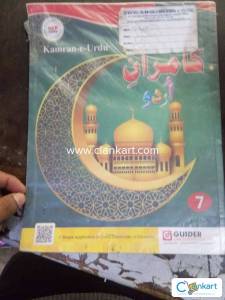Buy used Class 8 Books online in India
Buy Second Hand Books, Used Books Online In India
Maths books
This book has been prepared by a group of faculties who are highly experienced in training GATE candidates and are also subject matter experts. As a result this book would serve as a one-stop solution for any GATE aspirant to crack the examination. The book is divided into three parts covering, (1) General Aptitude, (2) Engineering Mathematics and (3) Mechanical Engineering'.
Concise mathematics for class 10
2021 Reprint of the 1925 Edition. Facsimile of the original edition and not reproduced with Optical Recognition Software. The novel tells the story of Porgy, a crippled street beggar living in the black tenements of Charleston, South Carolina, in the 1920s. The character was based on Charlestonian Samuel Smalls. In some of the novel's passages, black characters speak in Gullah, a creole language that had developed among enslaved African Americans during the slavery years on the Sea Islands. The novel was adapted for a 1927 play of the same name by Heyward and his wife, playwright Dorothy Heyward. Even before completing the play, Heyward was in discussions with composer George Gershwin for an operatic version of his novel. This was produced in 1935 as Porgy and Bess. George Gershwin read Porgy in 1926 and proposed to Heyward to collaborate on an operatic version. In 1934, Gershwin and Heyward began work on the project by visiting the author's native Charleston, South Carolina. In a 1935 New York Times article, Gershwin explained his motivation for calling Porgy and Bess a folk opera: "Porgy and Bess is a folk tale. Its people naturally would sing folk music. When I first began work on the music, I decided against the use of original folk material because I wanted the music to be all of one piece. Therefore, I wrote my own spirituals and folksongs. But they are still folk music-and therefore, being in operatic form, Porgy and Bess becomes a folk opera."
Oswaal sample paper class 10 ENGLISH
Each chapter in the syllabus is divided into 3 main categories of cards; Revise, Memorize & Test. The Revision Cards will provide a quick recap of the key facts in a systematic manner. The Memorize Cards will help in better retention of important formulae, definitions, equations, scientific term and much more. The Test Card will help you with quick evaluation of each topic based on the trending Typologies of Questions. It’s important to be aware of your strong & weak subject areas. There is a specific 4th category of Practical Cards (Science & Math) & Map Cards (Social Science) included.
























